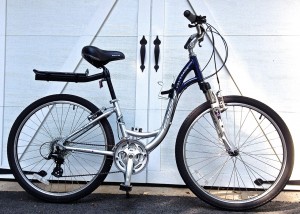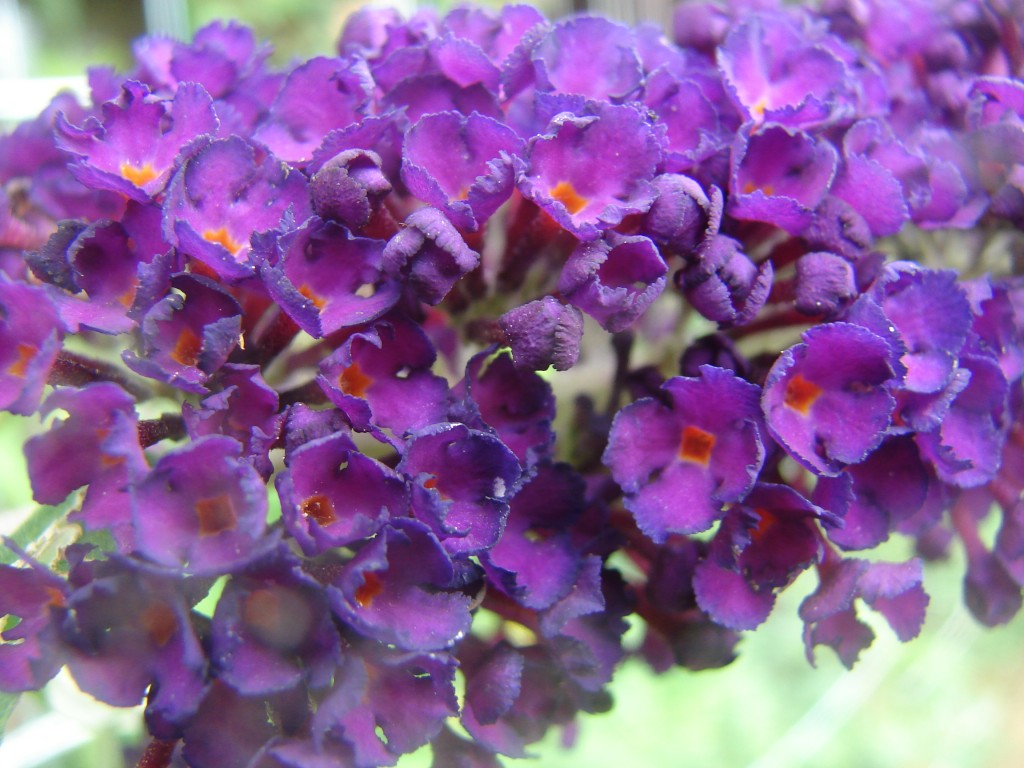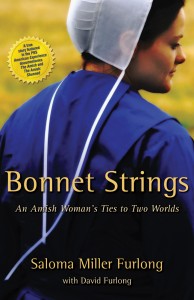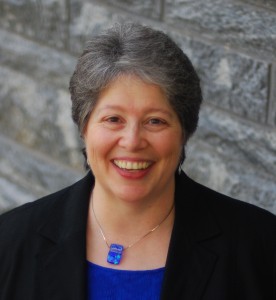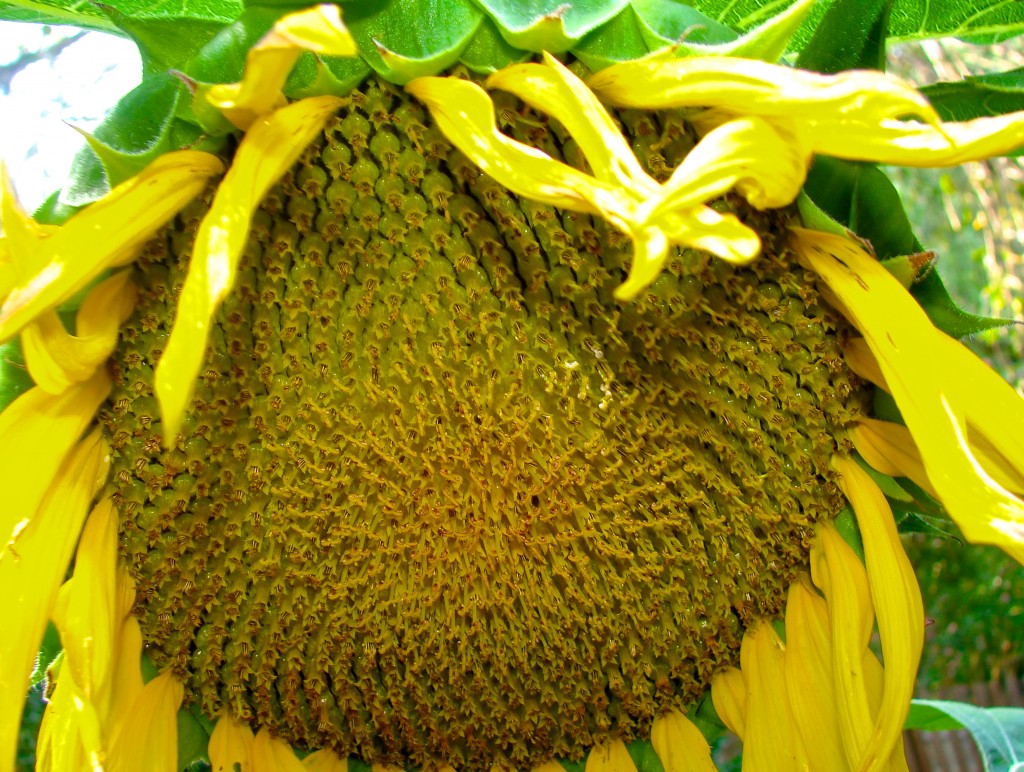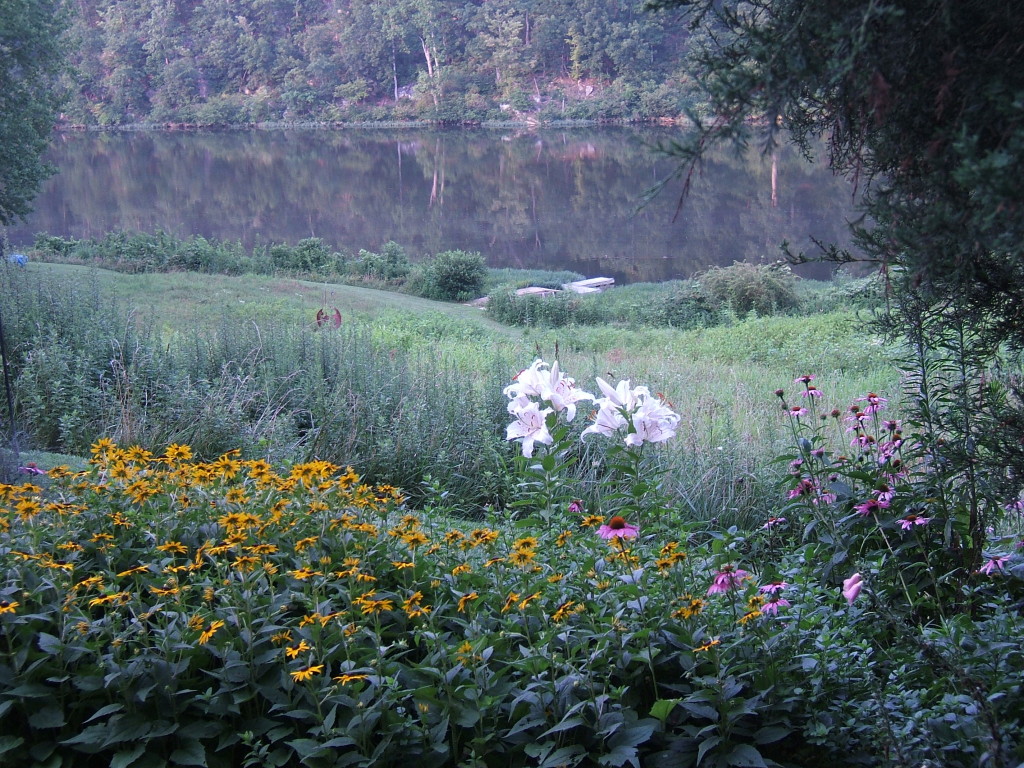Wanting to up our exercise choices, Bill and I bought us a pair of bikes eight or so years age. We were both members of gyms and worked out on a regular basis. I also did some flat water kayaking on the peaceful river we lived on at the time. Never really a fan of gyms and exercising indoors, I was interested in being outside where there were no membership fees or waiting in line to use a particular machine.
We took our bikes with us when we went to the Outer Banks on vacation every fall, where there are bike lanes along a straight expanse of road. Traffic at that time of year is always light and I felt quite safe when riding there. Along with beach walks everyday, I was getting plenty of exercise, and I loved being out in the chilly air with the wind in my hair and the sound of waves crashing ashore in the distance.
The biggest problem with riding my bike here at home was that there were no great places to ride. Living out in the country, the roads were narrow and curvy, and we knew someone who’d been badly injured when she was struck by a car, as she was biking along one of them.
Sometimes I loaded my bike in my car and took it to a county park, where I rode. But after a while that seemed like a pain in the butt. We lived on a lovely cul de sac that was long enough to get some speed up and also had a few little hills. I happily rode back and forth, burning calories for a while until I got bored with that.
As many things do, the bikes started gathering dust when we weren’t at the beach. When we moved here into town, where we thought we’d ride them more, they took up too much space in our much smaller garage. Though there are some bike lanes here in the city, I’ve seen too many near misses to get up the courage to launch myself into the community on my bike. So, our nice shiny bikes gathered even more dust.Once ion a while we’d haul them out, wipe off the cobwebs, and pump up the tires. They were ready for a spin around the block, which never seemed to happen.
Last year we decided that it would be best to sell them. We were too busy, or was it lazy, to make the effort to get them ready for rides we’d never take. This past week, Bill finally hauled them out, cleaned them up, and listed them on Craig’s List. I took one last wobbly ride down the driveway and back, just to be sure I wanted to part with my loyal stead. I decided my long morning walks were much safer.
But when the first call came in just after Bill had listed them, I felt very sad. It seemed like the end of an era and my youth. I felt older than my soon to be 72 years, and like I was giving up too easily on my need to stay young and fit.
My bike sold immediately. Bill’s is still in the garage, but I expect it to go soon. Feeling the same way I do, he and I mourned our losses together at Sunday brunch, over a scrumptious frittata, crab cakes, salad, and a Bloody Mary.
I have a friend, a few years younger than I am, who recently bought a new car. She was excited telling me about it. But the conversation ended when she added, “This is my last car.” I was taken aback. Her comment probably has something to do with the way I’m feeling about my bike, that isn’t mine anymore. I’m not that old, but the fact is I have to, “That was my last bike.” I do not intend to get another.
A few days later, I’m now thinking that it’s best that I did sell it. I wouldn’t want it to go unused and be something I’d trip over when trying to find something in the garage. I’m not giving up on my need to stay fit and young. I’m being realistic. I will not say that the car I have now, or that the next one I buy will be my last. But I am allowing myself to feel comfortable with the cross trainer in my studio that keeps me dry when it rains or snows, and the magical walks I go on when the weather is gorgeous.
 Like right now. The sun is shining, the sky is cloudless, turning leaves are drifting down in a light breeze, and a flock of starlings are gathering in the trees for their long flight south. I’m putting on a sweater, and am heading out down the street. Selling my bike was not the end of an era. It was an end of a season and the beginning of another. There are many more still left to be lived … a little bit differently perhaps, but always as wonderful as ever.
Like right now. The sun is shining, the sky is cloudless, turning leaves are drifting down in a light breeze, and a flock of starlings are gathering in the trees for their long flight south. I’m putting on a sweater, and am heading out down the street. Selling my bike was not the end of an era. It was an end of a season and the beginning of another. There are many more still left to be lived … a little bit differently perhaps, but always as wonderful as ever.
